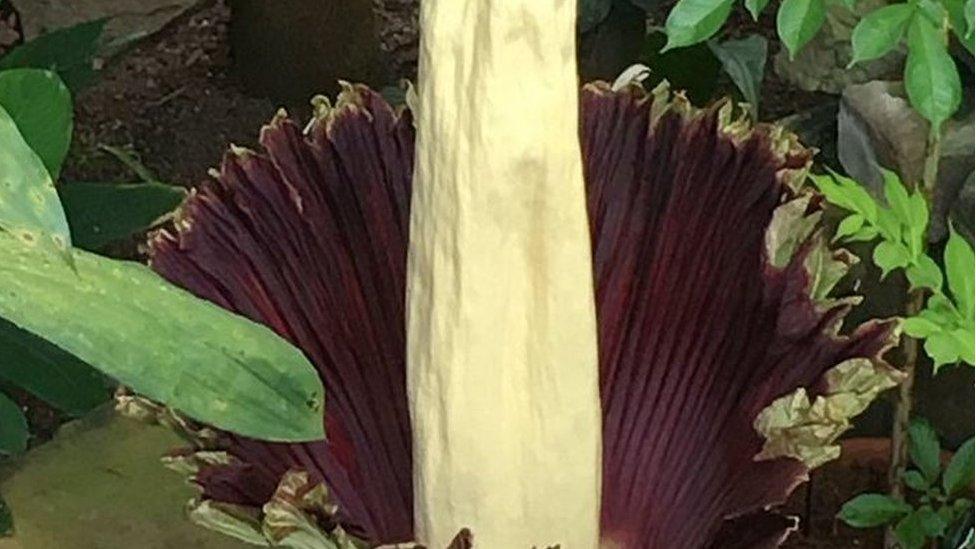Cambridge moonflower: Wait over for 'UK's first' bloom
- Published
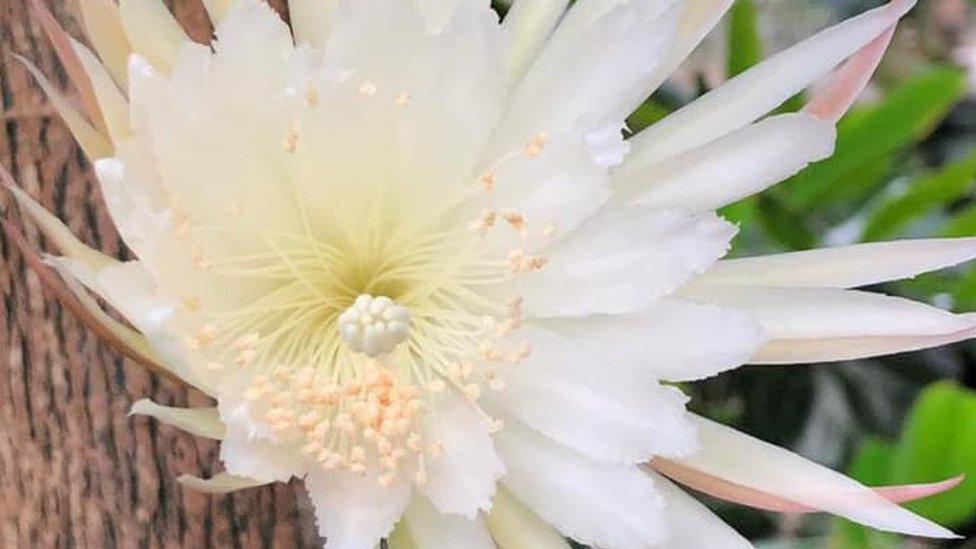
The rare type of Amazonian moonflower is in full bloom after widespread anticipation
A rare Amazonian cactus that has attracted interest from around the world has started to bloom.
The team at Cambridge University Botanic Garden believe their moonflower Selenicereus wittii is the first to flower in the UK.
Thousands of people have viewed a webcam, external which has been trained on the plant for about 11 days.
It was thought the plant would blossom at night, but a garden spokesperson said it appeared it was a "sun lover".
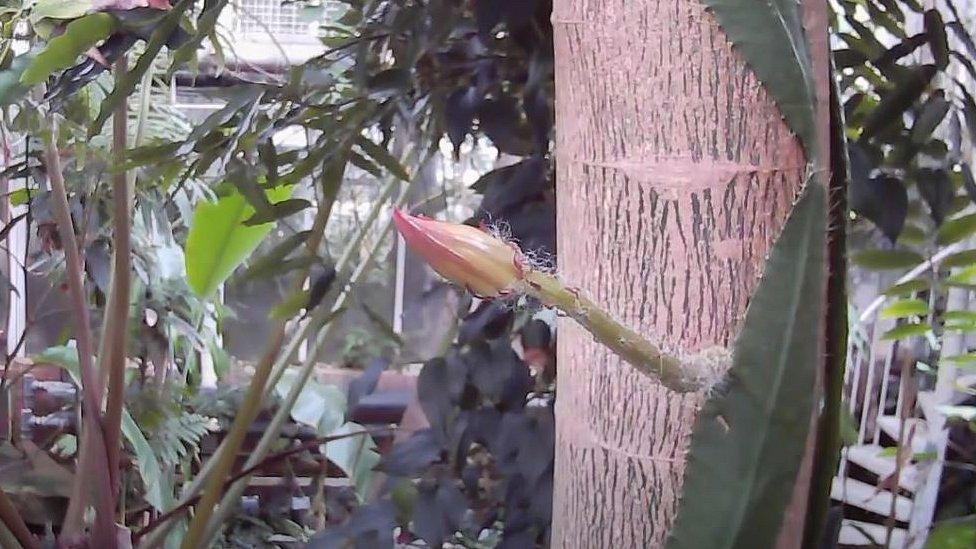
A webcam has been focused on the plant for 11 days during the wait for it to flower
The plant normally only flowers between sunset and sunrise, but the garden's director Prof Beverley Glover said "these things are always done at their own pace".
"I'm not as surprised as some might be, as plants have a habit of doing their own thing," she said.
"It is a bit special... a real treat and a real testament to the hard work of our glasshouse supervisor Alex Summers."
Anticipation for the cactus to flower was high because the blossom only lasts 12 hours - with this white flower measuring 11ins (28cm) long by 6ins (15cm) wide.
It has also meant a Facebook question-and-answer session due to be held later has had to be hastily rescheduled to 18:00 GMT, external.
Staff at the garden now hope it will bloom every year.
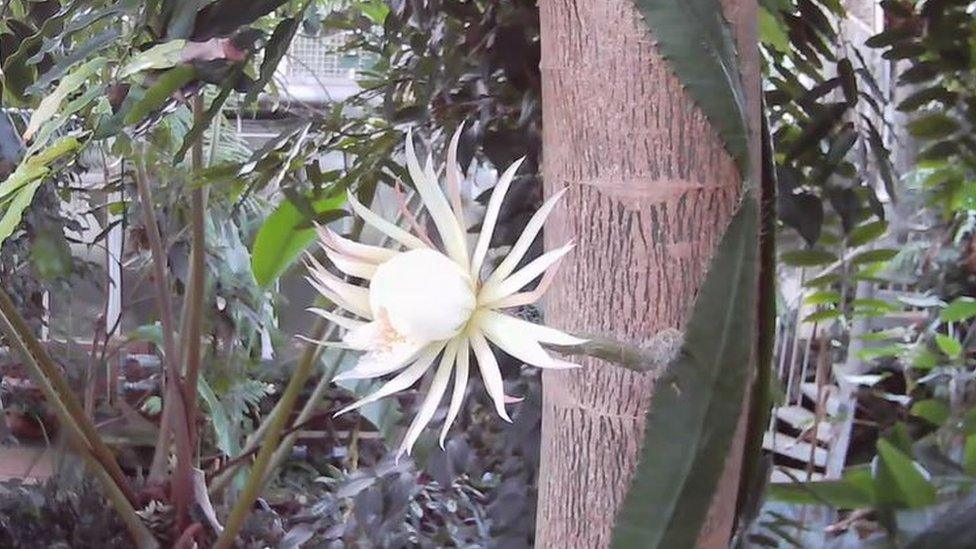
The moonflower started to bloom in the early afternoon - and not at sunset as expected
The plant was acquired six years ago from Bonn Botanic Garden in Germany and was attached to a water chestnut tree, where it climbed 12ft (3.5m) above the ground in a glasshouse before putting out its first bud.
Mr Summers, who planted it, said it was "very rare to have this plant in our collection and we believe this is the first time the moonflower has flowered in the UK".
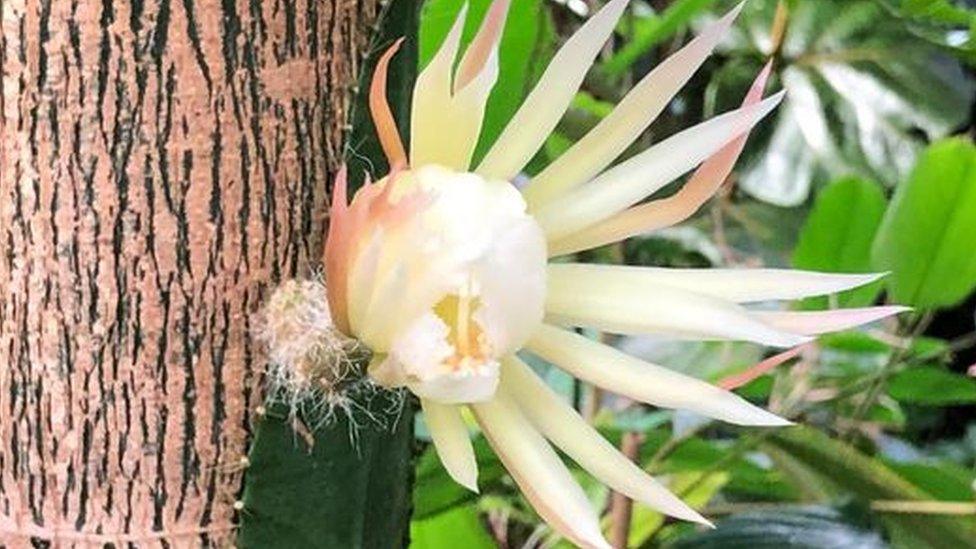
The blossom has a delicate beauty
The spokeswoman for the garden said the webcam trained on the plant had been "watched from all over the world" and had received more the 120,000 views.
She said a YouTube livestream had also had more than 100,000 views, while a page dedicated to the flower on its website, external had also received more than 100,000 views in the last week.

On the site's Facebook page, external, news of the bud flowering was met with glee and puzzlement.
One person wrote: "Can't believe almost missed it after watching for the last 10 nights," while another joked: "You have to love nature and its fickleness".
People were also keen to know what the flower smelt like, as the website had stated it would emit a "beautiful sweet-smelling fragrance" as it blossoms, which would change to something "rancid" after two hours.
Prof Glover said she had been told by staff that its smell was "not very strong" at present.
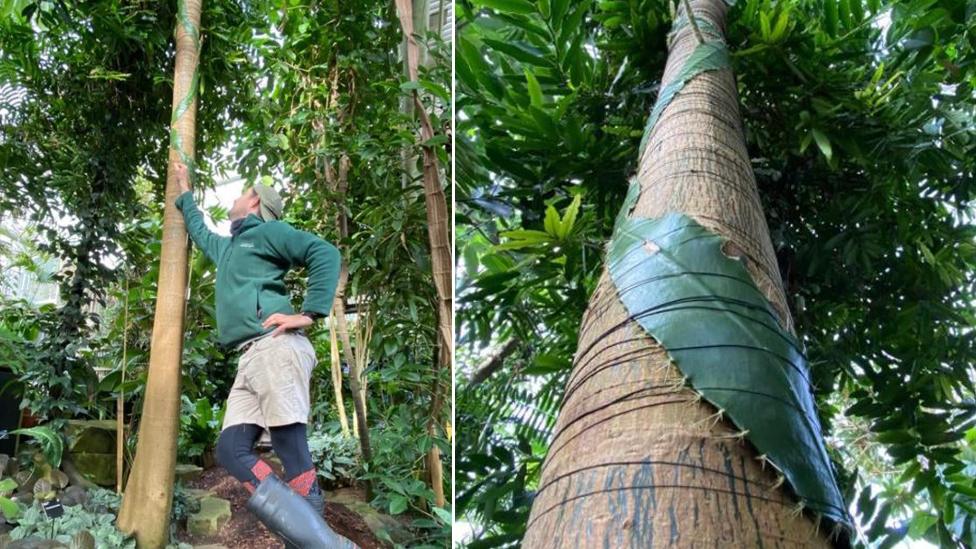
The cactus is an epiphyte, climbing high up another plant which it uses as an anchor point
Staff had earlier told the BBC how the global coverage had led to some people questioning the "rarity" of the Cambridge specimen and sending their own moonflower photos.
"People have been getting a bit confused about the name 'moonflower'," the spokeswoman said, adding that "lots of plants are given the common name moonflower".
The confusion prompted Mr Summers to publish an article on the website, external entitled: "Is my moonflower the same as your moonflower?".
"It is likely that most people may have Epiphyllum oxypetalum - a common epiphytic cactus species in cultivation," he wrote.
"This is not in the same genus as the moonflower we have growing here."
He added that his moonflower was "even rarer in cultivation than the Titan arum (otherwise known as the corpse flower) which bloomed at Cambridge University Botanic Garden in 2017".

Find BBC News: East of England on Facebook, external, Instagram, external and Twitter, external. If you have a story suggestion email eastofenglandnews@bbc.co.uk
Related topics
- Published20 February 2021
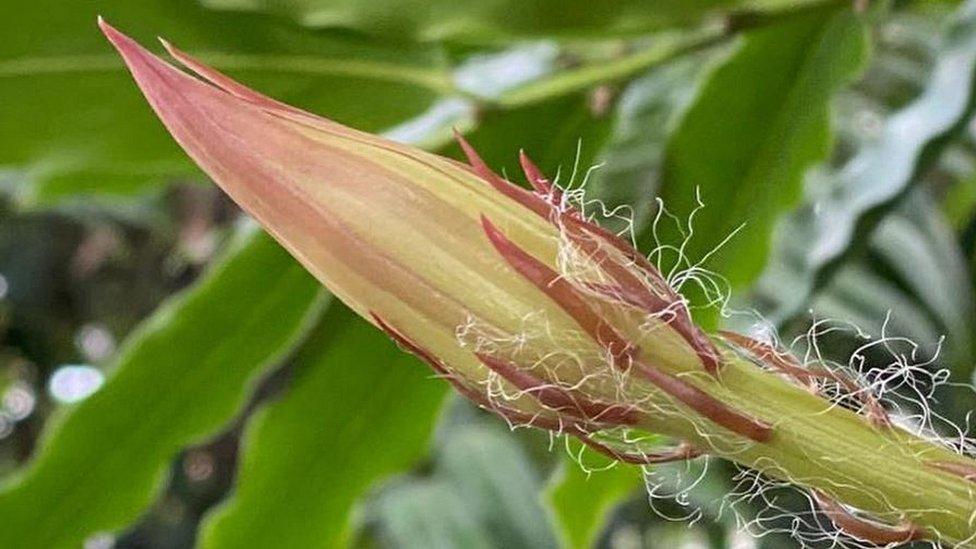
- Published11 February 2021
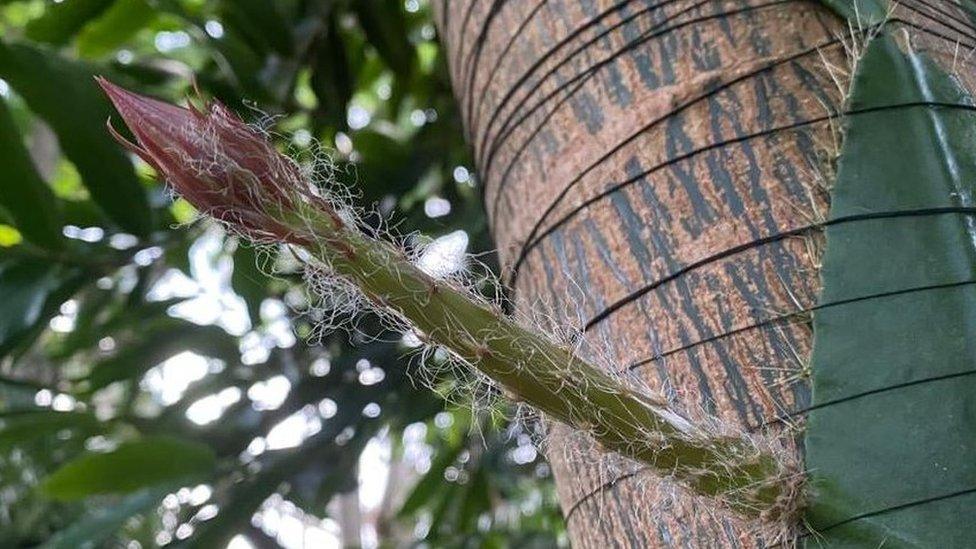
- Published22 October 2020
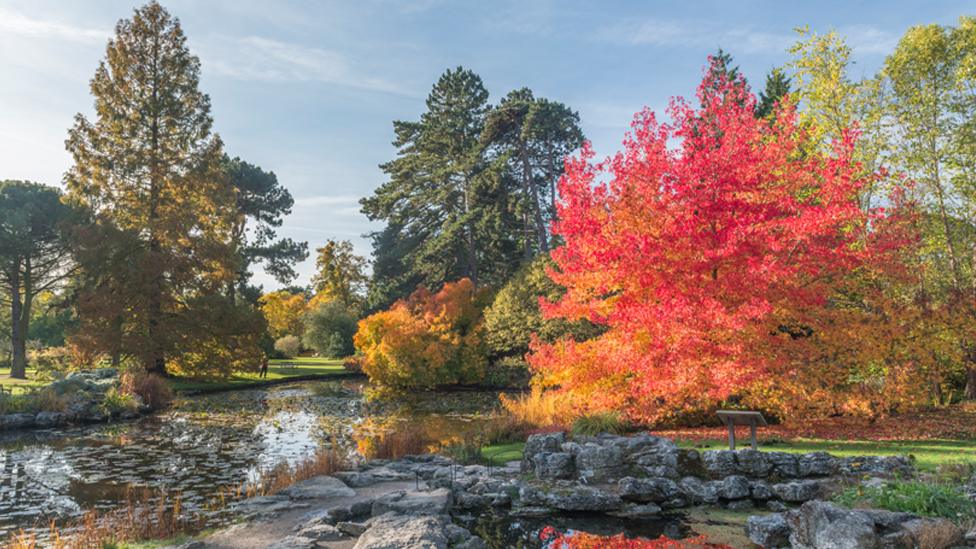
- Published10 September 2019
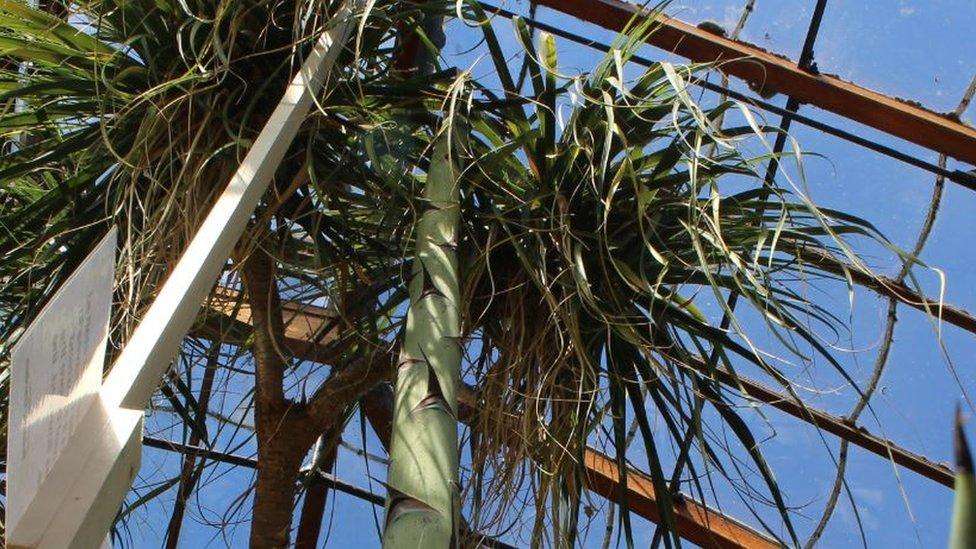
- Published26 June 2017
